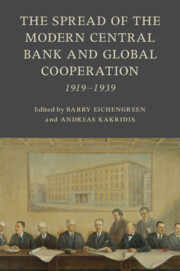
- Publisher:
- Cambridge University Press
- Online publication date:
- November 2023
- Print publication year:
- 2023
- Online ISBN:
- 9781009367578
- Subjects:
- Economics, Macroeconomics, Economic Theory, History, Economic History
- Series:
- Studies in Macroeconomic History



